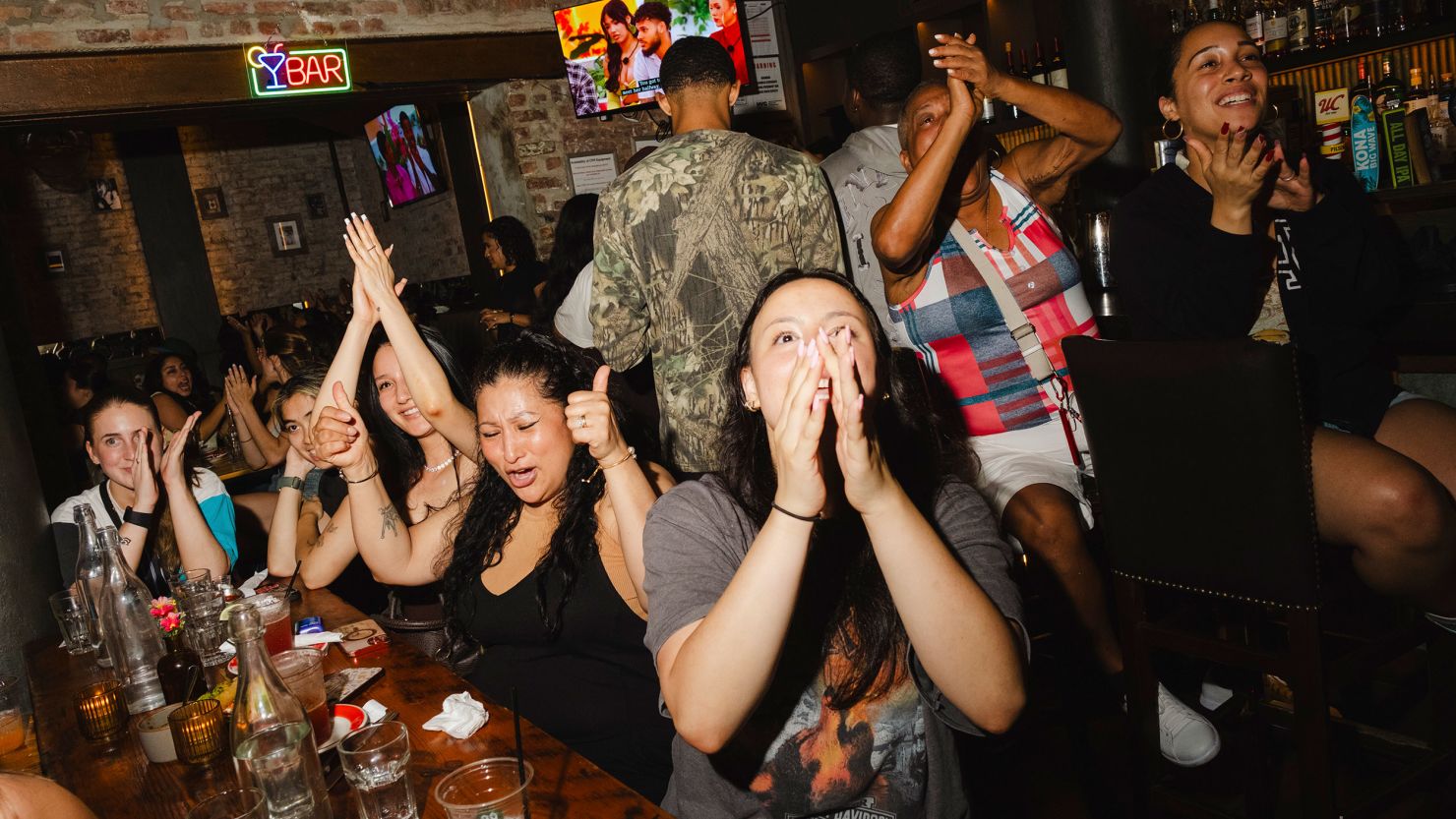What was once solo binge-watching on couches has turned into a cultural movement. As Love Island USA enters its seventh season, watch parties at bars across the U.S. have emerged as communal spectacles—transforming reality TV into live ritual and social broadcast for a diverse audience eager to reconnect post‑pandemic.
From living room luxury to packed bars
Once considered a guilty-pleasure, Love Island USA has broken streaming records—drawing millions on Peacock and dominating TikTok conversations. But the show’s most surprising resurgence has been away from screens: thousands now gather at bars, lounges, and pop-ups to watch together.

In cities like Los Angeles, New York, San Antonio, and New Haven, venues host weekly or nightly events tied to new episodes. Atmospheres buzz with themed cocktails, cheers, and collective reactions—turning dramatic recouplings, bombshell entries, and eliminations into shared moments of excitement.
A gender‑fluid audience energized by drama
While reality TV watch parties have traditionally skewed female, Love Island USA has drawn a surprisingly balanced audience. Men who once dismissed reality TV are attending with partners—or solo—finding joy in reality’s unscripted tension and intrigue.

These gatherings rival sports events in energy. Patrons often shout at screens, celebrate romantic reveals, mourn contestant exits—and foster new friendships in the spectacle’s aftermath. Bars now report attendance rivaling primetime sports nights, particularly during finale episodes.
Escapism meets emotional connection
At the heart of these watch parties lies a craving for emotional engagement. The show’s Gen Z contestants—focusing on vulnerability, mental health, and authenticity—resonate strongly in today’s fragmented social landscape. Their spontaneity and relatability have made Love Island USA feel more genuine than staged reality fare.

Post-pandemic, these events offer balm for isolation. Fans describe them as “neutral territory”—spaces where disagreements over contestant behavior feel safe, where strangers comfort each other over dramatic exits, and where hugging, gossiping, and karaoke after episodes is the norm.
Civic lessons in fandom energy
Beyond entertainment, Love Island USA viewing rituals have stirred unexpected civic engagement. Fans engage in digital voting—mobilizing like political campaigns, forming coalitions, and executing advocacy strategies reminiscent of voter outreach.
Experts note the show mirrors voter behavior in its immediacy, community-led strategies, and emotional charge—highlighting how culture can inform real-world activism. These watch parties, they suggest, may serve as blueprints for future grassroots engagement tactics.
Reality TV as revival and ritual
Love Island USA watch parties have become more than group viewings—they’re emotional events, community centers, and social laboratories. As audiences unite to cheer, gasp, and debrief, they reclaim collective joy and connection in a post-pandemic world.
What started as a guilty pleasure has evolved into an emotional practice, revealing how pop culture can rebuild bonds and mobilize hearts. In the rise of these gatherings lies a hopeful signal: when viewers come together, shared stories can still spark real life.










